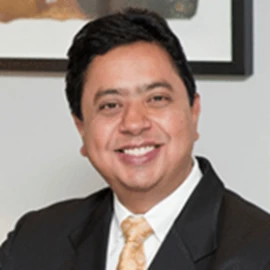
As many of those gathered here in Busan, I feel very excited about the chance we have to collectively shape the way in which development is practiced.
We live in times of extraordinary change and in the middle of a global financial crisis. In these times of change, our assumptions about economic development and about development cooperation are being fundamentally challenged. The old development cooperation paradigm is outdated. The old paradigm is a North-South paradigm of aid. It is based on the transfer of money from the developed “north” to the developing “south”. The money is accompanied by the transfer, also from North to South, of so-called “knowledge”, i.e. reform prescriptions. And in providing this North-South flow of Aid, the focus is on a narrow set of governmental actors.
Today, the world is fundamentally different in many different ways. Look at how the financial crisis is creating pressures on traditional assistance, including the pressure and imperative to show concrete and tangible results. Look at how citizen movements in the Middle East to the Anna Hazare movement in India have underscored powerfully that citizens want accountability. They are showing that development is not just a matter of government. Look at how the rise of ICT – the penetration of social media and mobile technologies - have dramatically changed the way we work, the way we think, the way we connect, the way we can involve everyone in development. And look at the rise of MICs. The emergence of MICs in the G20 signals a dramatic shift in global power. Also, these countries represent development success for other developing countries. These countries represent important new sources of South-South knowledge and investment that were not present just a decade ago. South-South exchanges can build inspiration, give practical know-how, build ownership and capacity in ways the North-South paradigm could not.
By inverting the old North-South paradigm, we are developing a new approach that focuses firmly on supporting country-led reforms by building the capacity of domestic leaders to themselves tackle development challenges. And for this, whereas the old or traditional paradigm focused on working primarily with a narrow set of government, to achieve results, we need collaborative actions between state and non-state actors, recognizing the growing importance of citizen voice and participation.We call this Open Governance. And to build the capacity of these actors, to build ownership, inspiration and practical “how to knowledge” of what has worked elsewhere, they need to be connected to multiple sources of knowledge and innovation, especially from the South. We call this Open Knowledge. And in the context of increasing pressures on traditional aid, we need to leverage aid to achieve stronger and more visible results, while broadening sources of finance, including South-South investments as well as grants from foundations to build the capacity of non-state actors. We call this Open Aid. This troika of Open Governance, Open Knowledge and Open Aid lies at the core of a new open development paradigm and can bring us closer to the vision of a more inclusive, democratic and effective development.
Photo caption: South-south Knowledge Exchange Map - World Bank Institute (WBI)
RELATED


Join the Conversation